Listen to this episode for up to 7 days after broadcast
Andrew McGregor introduces Radio 3's weekly programme devoted to all that's new in the world of recorded music.
On this week's programme:
VIVALDI: Sonata 11 in B minor ('Preludio')
(c/w Complete Op. 1 Sonatas)
Enrico Gatti (violin), Rossella Croce (violin), Judith-Maria Becker (cello), Monica Pustilnik (archlute), Guido Morini (harpsichord and organ)
Glossa GCD 921203 (2 CDs)
VIVALDI: 'Sin Nel Placido Soggiorno' from La fede tradita e vendicata) from disc Amor Profano - Vivaldi Arias
(c/w 'Siam navi all'onde' from L'olimpiade; 'Ah fuggi rapido' from Orlando Furioso; 'Non m'afflige il tormento di morte' from Tito Manlio; 'Quegl' occhi luminosi' from Semiramide; 'Squarciami pure il seno' from Il Tigrane; 'Se in campo armato' from Catone in Utica; Sinfonia from Il Tamerlano; 'Agitata da due venti' from Griselda; 'Dopo si rei disastri' from Tito Manlio; 'Amato ben tu sei la mia speranza' from La verita in cimento; 'Combatta un gentil cor' from Tito Manlio; 'La farfalletta' (adapted by Andrea Marcon); 'Or che cinto ho il crin d'alloro' from Guistino)
Simone Kermes (soprano), Venice Baroque Orchestra, Andrea Marcon (conductor)
Archiv Produktion 477 6618 (CD)
VIVALDI: 'Per laceralo' from Teuzzone RV 736 from disc Arie Ritrovate
(c/w 'Sarai qual padre mio' (reconstructed by Ottavio Dantone and Fredeeric Delamea); '[Se vincer non si puo' from La verita in cimento RV 739; 'Mi vuoi tradir lo so' from La verita in cimento RV 739; Recitative then Aria 'Con palme ed allori' from Scanderbeg RV 732; Concerto for Strings RV 136; 'Abbia respiro il cor' (reconstructed by Ottavio Dantone and Frederic Delamea); 'Perche lacero il foglio' (reconstructed by Ottavio Dantone and Frederic Delamea); 'Tu dormi in tante pene'from Tito Manlio RV 738-A; Concerto Violin RV 369; Recitative then Aria 'S'a voi penso, o luci belle' from Scanderbeg RV 732; 'Vedi le mie catene' from Teuzzone RV 736; 'Porta il sol del tuo sembiante' from Orlando furioso RV Anh 84; 'Alma mia fra tanti affanni' from Teuzzone RV 736)
Sonia Prina (contralto), Stefano Montanari (violin), Accademia Bizantina, Ottavio Dantone (director / harpsichord)
Naive OP 30443 (CD)
Album Description
This new release in Naïve's acclaimed Vivaldi Edition is dedicated to forgotten opera arias. Some of these arias were lost in the 18th century and have been found in manuscripts from Vivaldi's personal collection held in Turin. This includes two arias from Scanderbeg, an opera composed by Vivaldi in 1718. The opera itself has been lost and the pieces featured on this new CD are the only ones that remain from this work. The second part of the disc is made up of arias that are well-known but are performed here in different versions. They are taken from "Orlando furioso", "Tito Manlio" and "La Verità in Cimento". The release also includes two string concertos which feature the outstanding violinist Stefano Montanari who has himself appeared with great success on previous recordings in the Vivaldi Edition.
The Accademia Bizantina, an orchestra specialising in 17th and 18th century repertoire played on original instruments, has been directed by the harpsichordist Ottavio Dantone since 1996. In that time the group has risen to become one of the most highly regarded period orchestras today, bringing fresh energy and creativity to the interpretation of Baroque music. Contralto Sonia Prina is a highly regarded interpreter of early opera and has in recent years been Clarice in Rossini's La pietra di paragone at the Théâtre du Châtelet, and performed the title role in Handel's Rinaldo at La Scala Milan under the direction of Ottavio Dantone.
VIVALDI: Nisi Dominus RV 608

(c/w Crucifixus from the Credo RV 592; Stabat Mater RV 621)
Philippe Jaroussky (counter-tenor), Marie-Nicole Lemieux (contralto), Ensemble Matheus, Jean-Christophe Spinosi (conductor)
Naive OP 30453 (CD)
Building a Library Recommendation
POULENC: Gloria
Reviewer - Jeremy Summerly
First Choice:

(c/w HONEGGER: Symphonie Liturgique)
Luba Orgonasova (soprano), Royal Concertgebouw Orchestra, Mariss Jansons (conductor)
RCO Live RCO06003 (SACD)
1. Gloria: Gloria 2:19 $0.89
2. Gloria: Laudamus te 3:01 $0.89
3. Gloria: Domine Deus 4:04 $0.89
4. Gloria: Domine Fili, unigenite 1:21 $0.89
5. Gloria: Domine Deus, Agnus Dei 5:25 $0.89
6. Gloria: Qui sedes ad dexteram Patris 6:27 $0.89
7. Symphony No. 3 - Liturgique: Dies Irae: Allegro moderato 7:13 $0.89
8. Symphony No. 3 - Liturgique: De profundis clamavi: Adagio 11:29 Album Only
9. Symphony No. 3 - Liturgique: Dona nobis pacem: Andante 10:27 Album Only
MP3 Player showcase
Budget Choice:
(c/w VERDI: Messa Da Requiem; PUCCINI: Messa di Gloria)
Reinaldo Macias (tenor), Marcos Fink (bass), Brigitte Fournier (soprano), Chorus and Orchestra of the Gulbenkian Foundation (Lisbon), Michael Corboz (conductor)
Virgin Classics 5 62322 2 (CD, Budget)
Next week Stephen Plaistow examines recordings of Debussy's second book of piano preludes.
New Releases
Sir John Tusa picks out some highlights of the many discs appearing recently of Czech music. With extracts from and discussion about the following discs.
DVORAK: Piano Trio in B flat major Op. 21 B51

(c/w ZDENEK FIBICH: Piano Trio in F minor; MARTINU: Piano Trio No. 2 in D minor H 327)
Smetana Trio
Supraphon SU 3927-2 (CD)
GIDEON KLEIN: String Trio (Terezin 1944) from disc Gideon Klein: The Chamber Music for Strings
(c/w Four Movements for String Quartet; String Quartet Op. 2; Duo for Violin and Viola; Preludium for Viola Solo; Duo for Violin and Cello; Fantasy and Fugue for String Quartet)
Kocian Quartet
Praga Digitals PRD/DSD 250 224 (SACD)
Bedrich Smetana - Complete Orchestral Works
(Ma Vlast; Wallenstein's Camp, Symphonic Poem Op. 14; Hakon Jarl, Symphonic Poem Op. 16; Richard III, Symphonic Poem Op. 11; Overture to 'The Bartered Bride'; Three Dances from 'The Bartered Bride'; Doktor Faust, Overture to the puppet-play by Matej Kopecky; Venkovanka, The Peasant Woman, Polka; Nasim Devam, To our Girls, Polka; Festive Symphony in E major Op. 6; Festive Overture in C major; Festive Overture in D major Op. 4; Prague Carnival, Introduction and Polonaise; March of the National Guard; Shakespeare Festival March Op. 20)
Janacek Philharmonic Orchestra, Theodore Kuchar (conductor)
Brilliant Classics 93634 (3 CDs, Budget)
Product Description
Bedřich Smetana was the first major nationalist composer of Bohemia. Probably best known for his opera The bartered bride and of course The Moldau (from `My fatherland') most of his orchestral music is rather neglected by the average symphony orchestra.
Smetana's predilection for anything Bohemian shines through not just in his music but also particularly in the subjects of his symphonic poems and opera. A keen dancer himself, his music often echoes his native dance tunes as well.
The composer also had a keen interest in the theatre. Hence the subjects of his early symphonic poems which were based on works by Shakespeare, Schiller and Oehlenschläger. Of his later symphonic poems the series `Má Vlast', especially `Vltava'(the Moldau) is very well-known.
Of course no orchestra but the Janáček Philharmonic Orchestra conducted by Theodore Kuchar could play this music better: this is the genuine article. On these three CD's one can hear the ultimate performances of this most pleasant and vivacious music.
SMETANA: Vltava from Ma Vlast; Janacek: The Cunning Little Vixen - Suite from the Opera (arr. V. Talich) from disc Vaclav Talich Special Edition 17
(c/w Vysehrad and Sarka from Ma Vlast; Libuse - Overture; Our Lasses - polka (Nasim devam); Prague Carnival - introduction and polonaise; The Two Widows - Recitative and Aria of Anezka; Dvorak: The Noon Witch (Polednice); SUK: A Fairy Tale (The Game of the Swans and the Peacocks); Kovarovic: Miner's Polka for orchestra; Blodek: In the Well (Vstudni) - Overture; Act II. Bonus: Vaclav Talich speaking, recordings of parts of rehearsal - Dvorak: Cello Concerto, Symphony No. 9)
Czech Philharmonic Orchestra, Ludmilla Dvorakova (soprano), Mstislav Rostropovich (cello), Pragude Radio Symphony Orchestra, Vaclav Talich (conductor)
Supraphon SU 3837-2 (2 CDs, Mid Price)
MARTINU: Concerto for violin, piano and orchestra H342 from disc Music for Violin and Orchestra Vol. 2
(c/w Concerto da camera H285; Czech Rhapsody, arr. for violin and orchestra by Jiri Teml H307A)
Bohuslav Matousek (violin), Karel Kosarek (piano), Czech Philharmonic Orchestra, Christopher Hogwood (conductor)
Hyperion CDA67672 (CD)
Interview with Sir Simon Rattle
Sir Simon Rattle talks about his recent work with the Berlin Philharmonic, including his recording of Mahler's 9th Symphony and Mussorgsky's 'Pictures at an Exhibition'. With extracts from the following discs:
MUSSORGSKY: Pictures at an Exhibition; BORODIN: Symphony No. 2; Polovtsian Dances from Prince Igor
Berlin Philharmonic Orchestra, Sir Simon Rattle (conductor)
EMI 517582 2 (CD)
Silvesterkonzert der Berliner Philharmoniker 2007 - Part I
Silvesterkonzert der Berliner Philharmoniker 2007 - Part II
Live aus Berlin: Silvesterkonzert der Berliner Philharmoniker 2007 Seit nunmehr 31 Jahren markiert das Silvesterkonzert der Berliner ... all » Philharmoniker das Ende des Klassik-Jahres im ZDF (das ebenso traditionell am jeweils nächsten Morgen mit dem Neujahrskonzert der Wiener Philharmoniker eingeläutet wird).
Zum Jahresausklang 2007 hat der Berliner Chefdirigent Sir Simon Rattle ein imposantes Klanggewitter russischer Provenienz zusammengebraut.
Alexander Borodins "Polowetzer Tänze" sind äußerst effektvolle Miniaturen, in denen der Komponist den Kontrast zwischen der russischen und asiatischen Welt auf ebenso originelle wie mitreißende Weise in Töne fasst. Ursprünglich waren diese Tänze Teil der Oper "Fürst Igor", doch für ein Pariser Gastspiel ihres "Ballet Russe" entwickelten Impresario Serge Diaghilew und Choreograph Mikhail Fokine aus den "Polowetzer Tänzen" eine ganz eigene Bühnenversion von Borodins "russischen Volkstänzen".
Die ungezügelte Wildheit und Ausdruckskraft dieses Balletts war eine Neuheit im Paris des frühen 20. Jahrhunderts und begeisterte das Publikum. Diese Popularität überdauerte Jahrzehnte und schwappte schließlich über den Atlantik: in den 50er Jahren erklangen Borodins Tänze sogar am Broadway (im Musical "Kismet") und wurden, noch einmal neu arrangiert, zum Welthit, den u.a. Bing Crosby, Tony Bennett und die Four Aces im Programm hatten.
Auch das wohl bekannteste Klanggemälde russischer Herkunft wurde erst in einer Bearbeitung zum Welterfolg: Modest Mussorgskys "Bilder einer Ausstellung" wurden zu Lebzeiten des Komponisten mehr oder weniger ignoriert. Gedruckt wurde der Klavierzyklus überhaupt erst einige Jahre nach Mussorgskys Tod (1886), fand aber trotzdem nur selten den Weg auf das Konzertpodium.
MAHLER: Symphony No. 9
Berlin Philharmonic Orchestra, Sir Simon Rattle (conductor)
EMI 5012282 (2 CDs)
Product Description
Oberösterreichische Nachrichten, August 29, 2007
`Sir Simon Rattle has once again demonstrated his great affinity for this music and his ability to recreate it in the most thrilling fashion.[...] It is hardly possible to imagine a realization of this music at once more moving and more menacing. The finale was heavenly, with the Berliners pulling out all the stops. Outstanding solo playing, subtly savoured colours, saturated and warmly sonorous wind chords and a pianissimo that died away into utter oblivion - all these contributed to making this a sensational concert.'
Album Description
Simon Rattle began recording the Mahler symphonies for EMI Classics in 1987, the first foray being Symphony No. 2 with the CBSO, and the subsequent cycle has seen great critical success. Gramophone said of Sir Simon's earlier recording of Mahler 9 with the Vienna Philharmonic Orchestra for EMI: "How thrilling it is to hear the score projected at white heat! This is at various times the loudest, softest, fastest and slowest Mahler Ninth on disc." And the magazine commented on his Mahler 10 recording with the BPO, which was his first Mahler with the orchestra: "Rattle makes the strongest possible case for an astonishing piece of revivification that only the most die-hard purists will resist. Strongly recommended."
With over 225k sales to date, his recordings of Mahler 5 and 10 with the BPO have certainly been a huge hit, and this new recording of Symphony No. 9 is sure to be just as successful amongst his many fans.
BRAHMS: Ein Deutsches Requiem

Dorothea Roschmann (soprano), Thomas Quasthoff (baritone), Rundfunkchor Berlin, Berlin Philharmonic Orchestra, Sir Simon Rattle (conductor)
EMI 3653932 (CD)
1. I. Selig Sind, Die Da Leid Tragen
2. II. Denn Alles Fleisch, Es Ist Wie Gras
3. III. Herr, Lehre Doch Mich
4. IV. Wie Lieblich Sind SDeine Wohnungen
5. V. Ihr Habt Nun Traurigkeit
6. VI. Denn Wir Haben Hier Keine Bleibende Stadt
7. VII. Selig Sind Die Toten
Editorial Reviews
This is a big, monolithic performance of this somewhat monolithic work, but it doesn't sound impenetrable as it occasionally can. The second movement is as gigantic as any might want, but there's great spring in its last few minutes; elsewhere, Sir Simon Rattle leads with a clarity and energy that are decidedly not lament-like. The 4th movement, "Wie lieblich sind deine Wohnungen," seems to sway under Rattle's baton; it appears as a light interlude. There is great warmth in the "Ich habt nun Traurigkeit" movement and all pomp seems to die away. The fugal moments are crystal clear, even with the large orchestra and chorus (this is clearly not a "period" instrument performance), and both soloists--baritone Thomas Quasthoff and Dorothea Röschmann--sing their music with close attention to the text. The Berlin Philharmonic and Rundfunkchor are superb. This is a beautiful reading of a work that can be forbidding – highly recommended. --Robert Levine
After the interview extracts from the following disc:
JOHANNES MARIA STAUD: 'Apeiron' from disc Apeiron
(c/w Incipit III (Esquisse retouchee II); Towards a Brighter Hue; Violent Incidents (Hommage a Bruce Nauman); Peras)
Berlin Philharmonic Orchestra, Sir Simon Rattle; WDR Sinfonieorchester, Lothar Zagrosek (conductor); Windkraft Tirol Kasper de Roo, Marcus Weiss (saxophone); Uwe Dierksen (trombone), Marino Formenti (piano), Ernst Kovacic (violin))
Kairos 0012672KAI (CD)
Disc of the Week
WHITE: Lamentations a5 from disc Treasures of Tudor England

(c/w Christe qui lux es dies IV; PARSONS:
Ave Maria; O bone Jesu; TYE: Agnus Dei
from Mass: Euge bone; Peccavimus cum
patribus nostris)
The Sixteen, Harry Christophers (conductor)
Coro COR16056 (CD)
Next Week
On next week's CD Review Stephen Plaistow recommends a recording of Debussy's Piano Preludes (Book II) and Richard Morrison reviews Mussorgsky, Tchaikovsky and Busoni opera DVDs


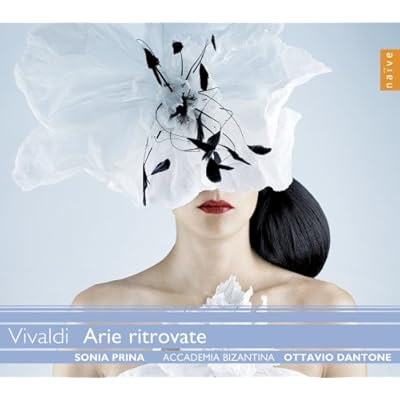
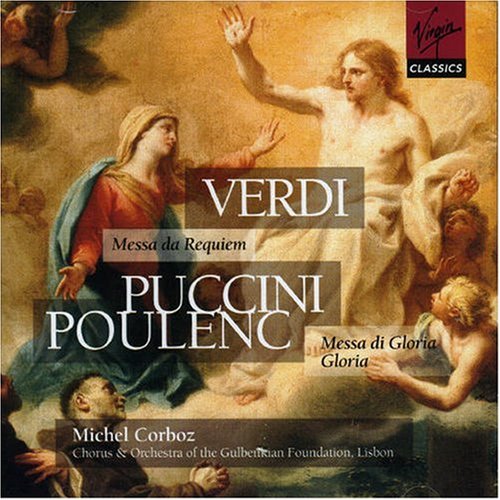


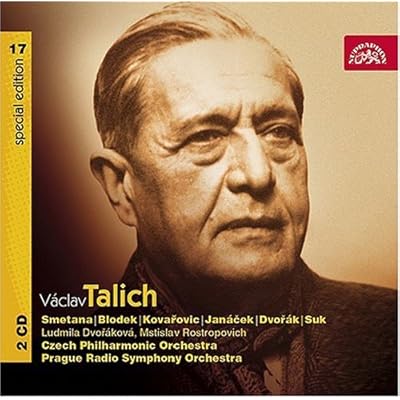


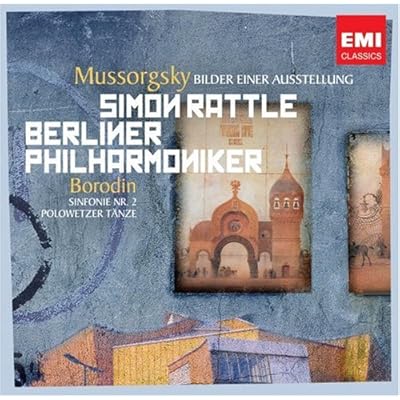

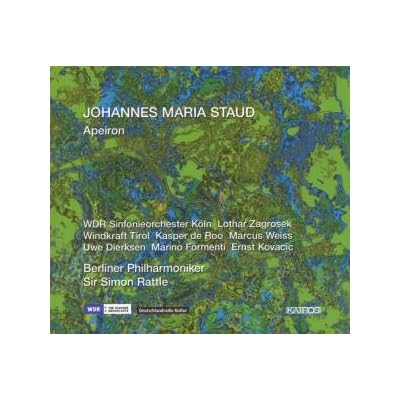
No comments:
Post a Comment